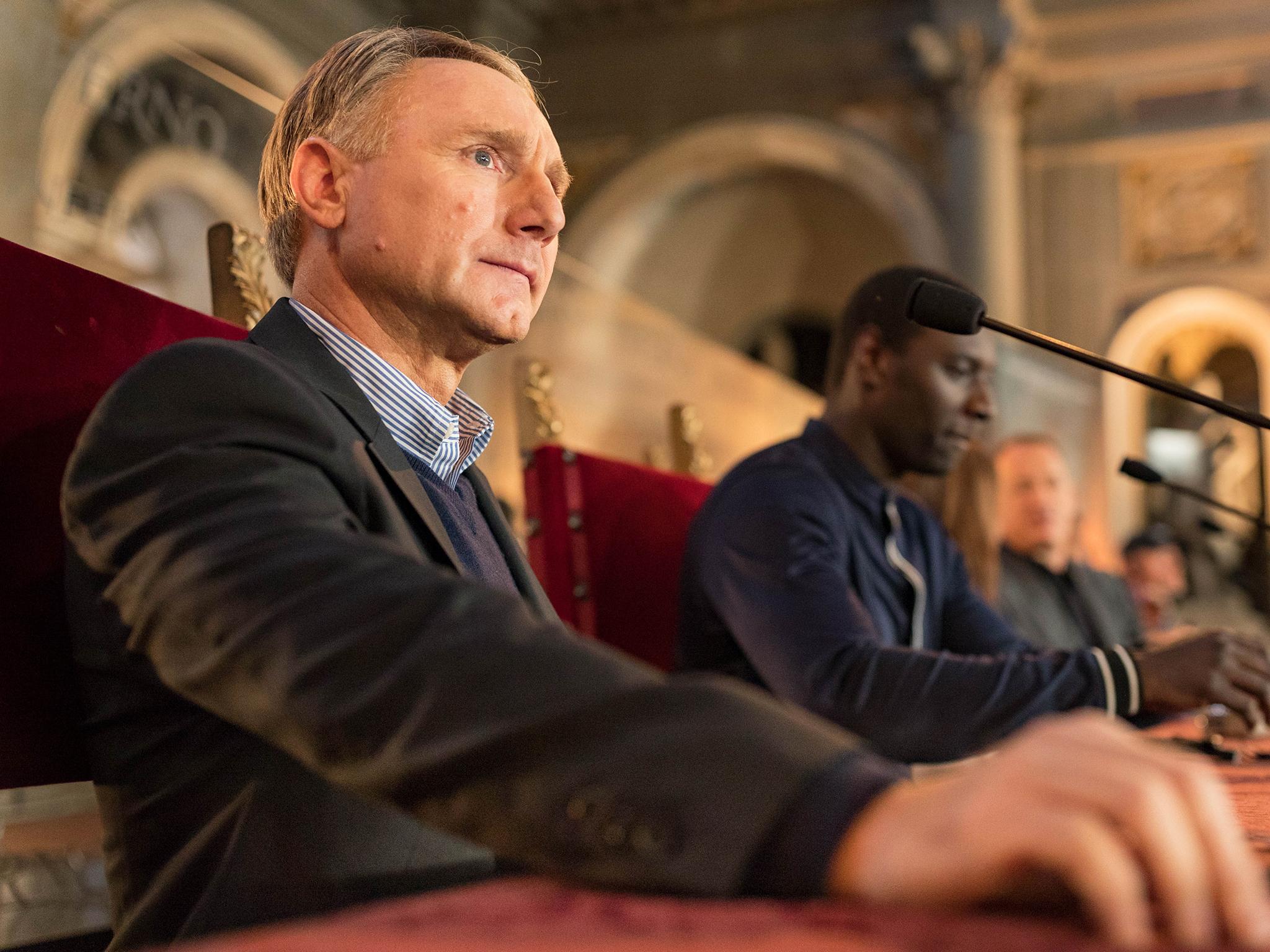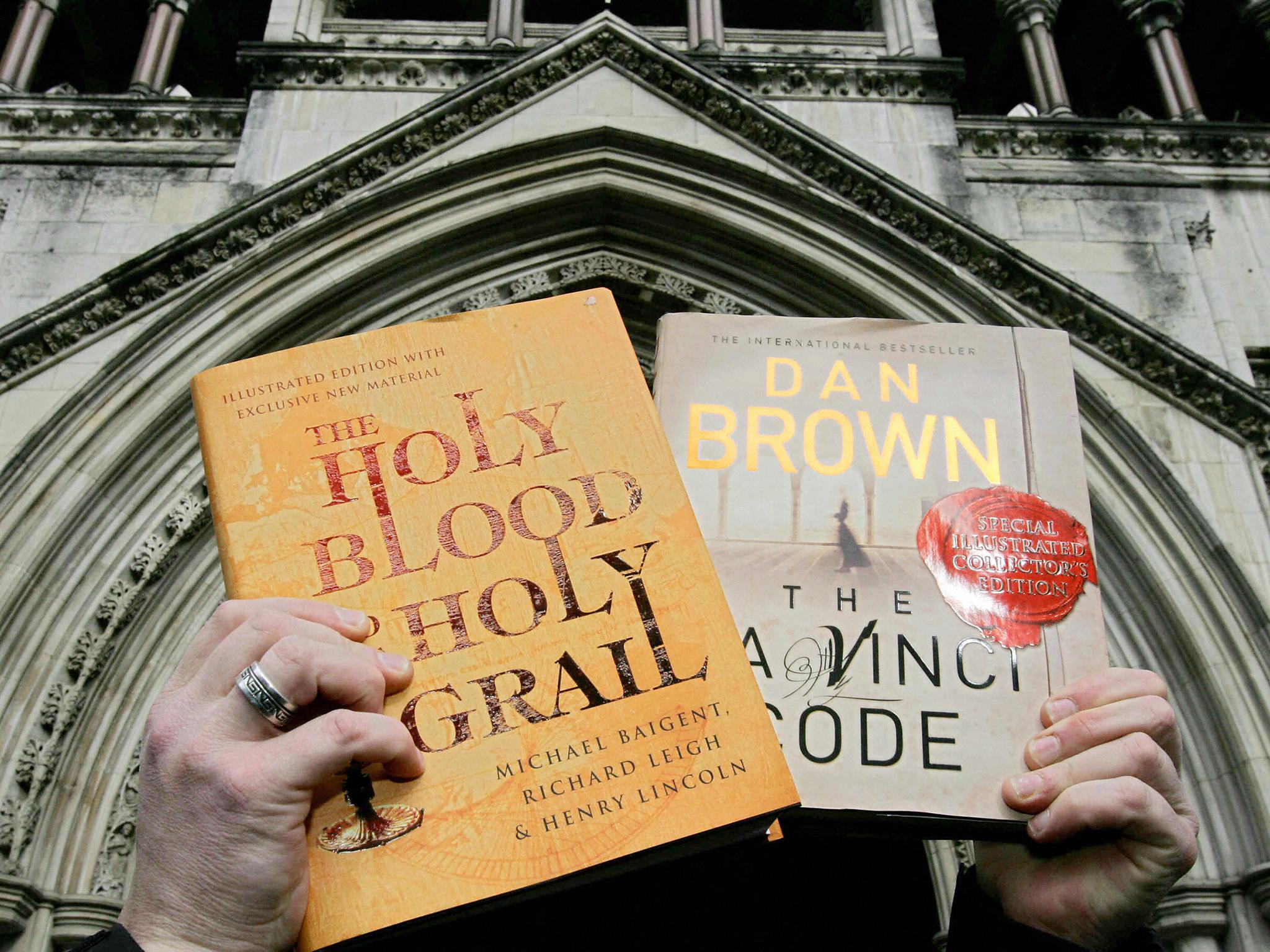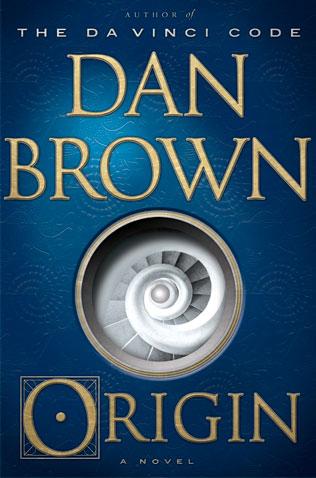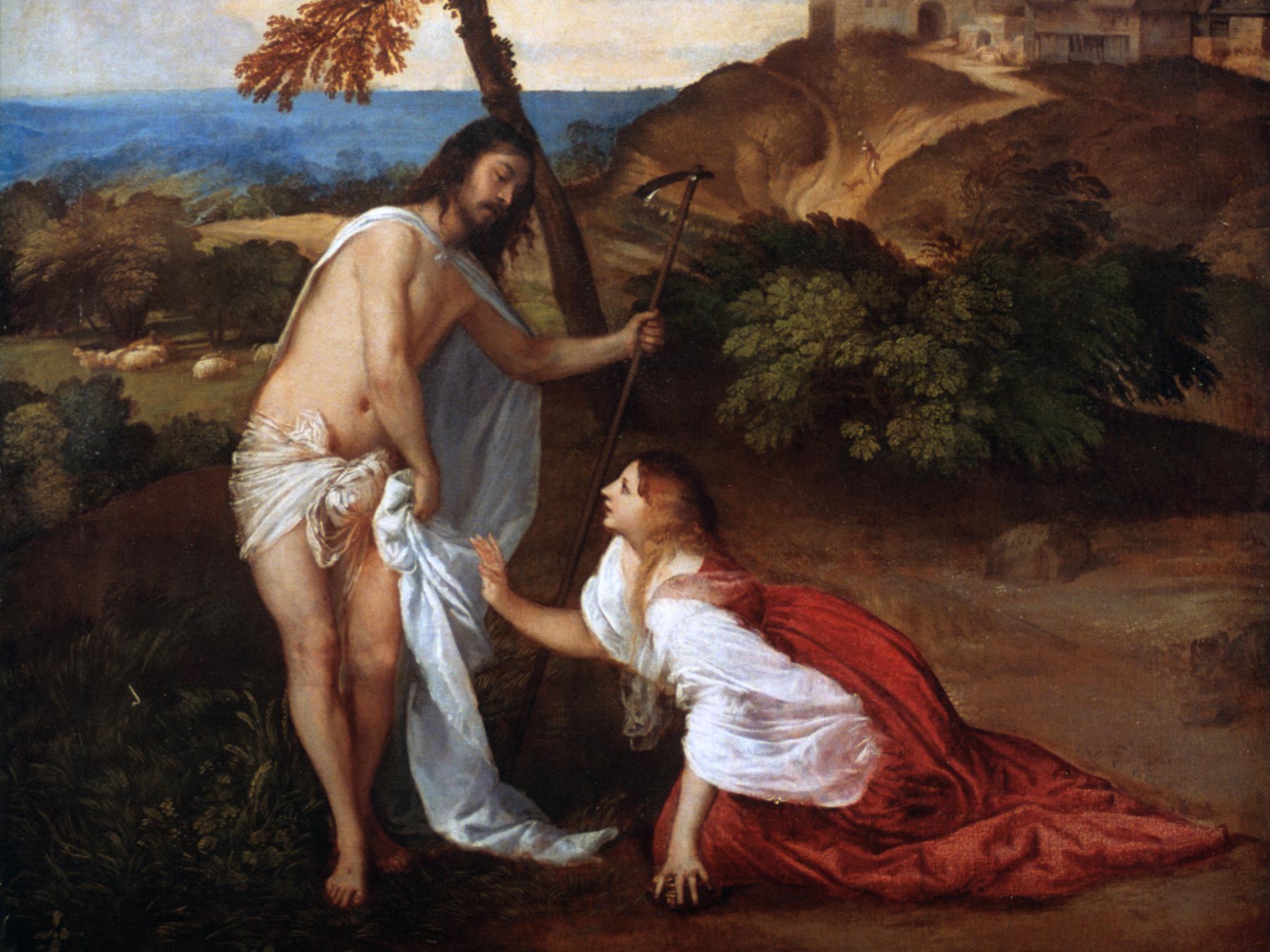There is no such thing as plagiarism so you can’t possibly be guilty of it
Nothing is ever really original in a strong sense, everything is derivative, recycled or upcycled, which is why Andy Martin won't be reading Origin, the new thriller by Dan Brown

I’m sorry. I won’t be buying the new Dan Brown novel, Origin (due out next month). Mainly because I will be wondering about its origin.
I have nothing against his style (a lot of people have, I’ve noticed). It’s functional. It’s adequate. Just a little slack in parts. Do I disdain his latest conspiracy theory? How much harm could yet another whacky conspiracy theory do among so many? Do I mind the ludicrously over-qualified, damnably good-looking academic hero? Not at all. He’s just fine. A bit like me in fact.
No, it has to do with my experience as a builder. Limited, I know, but it’s there. I used to be gainfully employed once by an upstanding, hard-working Irishman by the name of Mr Griffin. One fine day there was a delivery of bricks to the site. A lorry load of bricks. Everything was in order. All the brick-delivery man had to do was switch on his crane, mounted on the back of the brick lorry, and move all the bricks in one fell swoop from the back of his vehicle down to the ground.
And then the brick-delivery man said: “It’ll be a fiver for me to unload, mate. With the crane.” Mr Griffin gave him a look. “Andy, will you get yourself over here.” I went over. “I’ll not put good money in his pockets,’’ he said. Quite right I thought. “Andy, you take the bricks off that lorry.’’

Need I say I spent the next hour or so slogging, removing the bricks by hand and hod (I feel somehow I’m still doing it), while the two men eyed one another with mutual distrust and loathing. Nothing to be done about it. Mr Griffin was right. The brick-delivery guy was trying to pull a fast one, let’s face it. It was one of the perks – charging people to use the bloody crane – when it was obvious that’s what he was supposed to be doing gratis. I just happened to be at the sharp end. Aside from that significant detail, I thought Mr Griffin was spot on.
I guess I still feel that way. And so – via this true story that is also an allegory of much of literature I suspect – we come to Dan Brown’s classic The Da Vinci Code. Basically, isn’t this the text equivalent of a load of bricks the brick-delivery guy (this would be Dan Brown) has picked up from somewhere and is charging us to unload? The bricks in the case of The Da Vinci Code come not from Leonardo da Vinci (which is just a layer of cement on top) but from another book, The Holy Blood and the Holy Grail, by Michael Baigent, Richard Leigh and Henry Lincoln.
I guess I was particularly conscious of this because for some twisted reason of my own I had read The Holy Blood and the Holy Grail before I ever read The Da Vinci Code (their book came out in 1982, Brown’s in 2003). And as I was reading Dan Brown I kept thinking about that brick-delivery guy. My son called it “the Da Pinci Code” and I reckon he’s got a point, morally at least.

Just to reiterate for those who don’t already know, and leaving out enough detail just in case, at this late stage of the game, you really don’t want to know and would rather be kept guessing. Baigent, Leigh and Lincoln came up with a new theory of the meaning of the Holy Grail. No, it is not (as per Monty Python and countless others) a cup or goblet (fancy or not) containing (at some point) the blood of Christ. Rather, since (purely theoretically) Jesus begat a child with Mary Magdalene, the Grail is the blood itself, as transmitted through the generations, like some kind of semi-divine Olympic torch. Nice idea. Forget the mug, focus on the contents of the mug. It’s all about the holy DNA. Even the Knights Templar get in there somewhere.
In a way, the weird thing about The Da Vinci Code is that the superbly well-read Robert Langdon doesn’t already know all this. He has to be surprised by the revelations. Funny, really, all he needed to do was buy a copy of the original book. “‘Oy, Bob, just have a look at this will you, it’s called The Holy Blood and the Holy Grail. Save you a lot of time and trouble. Not to mention tangling with albino assassins.”

Without wanting to give it all away, the authors lost their case again Dan Brown. Of course they had to sue for plagiarism. To my mind it was reasonable. They surely had a strong prima facie case against him. In words of one syllable, he had based his story on their big idea. Would he mind coughing up some dosh by way of recognition?
Answer, yes he would. All those millions he got paid for The Da Vinci Code, it turned out he really needed every single one of them. There was no fat, none. I imagine he was surrounded by starving infants and the like no doubt. Had several houses in far-flung places that needed a lot of looking after. And then increased security to look after the millions. Being rich can cost you a lot of money. So the idea of just forking it out to all and sundry was a total non-starter.
And then, some way behind, there was the intellectual and legal argument. Oddly enough there is an almost watertight intellectual case for plagiarism, which consists of saying there is no such thing as plagiarism of an idea in the first place, so you can’t possibly be guilty of it, can you? Picasso said: “I don’t borrow, I steal”.
A little bit like that brick-delivery guy of old, I suppose, except that he said it in the expectation that people would get that everybody steals from everybody else so it cancels out. Claude Lévi-Strauss, the great anthropologist, had a good word for it – bricolage. Which translates as something like DIY, but he meant specifically that the way culture works is that you see something you like and you rip it off and then re-purpose it, translate, transpose, transform. Everything is a metamorphosis of something else.
Nothing is really original in a strong sense, everything is derivative, recycled or upcycled. Harold Bloom, in the The Anxiety of Influence, argued that the key to understanding any great artist is the struggle (or “agon”) that is going on between the new woman and her precursor, that shadowy presence/absence that you love and hate, Oedipally, and must ultimately overcome.
The whole idea of the “text” is that it is a small fragment of the much larger intertext. The internet is a version of the intertext: you know how you think you’ve just come up with some devastating insight and then the guy next to you pulls out his phone and points out it’s already on Wiki quotes or whatever? Well, the intertext is just like that. You don’t even know you’ve done it most of the time.

No apologies from our Mr Brown. He does, to be fair, give the previous Holy Grail book a decent shout-out in his book. Cites it, calls one of his characters Leigh and gives one character an acronym of the name of one of the authors. Isn’t that enough?
Legally, it should be said, Dan Brown stands on solid ground. He won, so case dismissed. And the fact is – for here we begin to speak of “facts” – the “original” book (which needless to say had to some extent been derived from prior sources) asserts its own historicity. Here, the authors say, is the truth about the Grail. The blood is real. Here is the bloodline. It’s as factual as 1066 or the assassination of JFK. So they say.
And Mr Brown – here we can hear the defence counsel speaking, surely – “Members of the jury, I put it to you that Mr Brown was merely drawing on historical sources as every author is entitled to do. If he is to be accused of plagiarism, then any author who refers to, shall we say, the Second World War, or the Fall of the Roman Empire, will find other authors of books about these perfectly legitimate subjects suing for plagiarism. You cannot plagiarise history.”
When I was pondering these matters I received a message from another best-selling author making a stout defence of Dan Brown, which echoed and reinforced this original line of argument. “If a novelist uses a non-fiction book for research, how is that stealing? Non-fiction promises facts, there is no copyright in facts, ergo no stealing. If I temporarily forget how many rounds there are in a Glock magazine, and I look it up in a reference book, am I stealing that author’s work? Or is there a separate category of not-really non-fiction? Perhaps there should be a warning label. Contents Presented As Factual, But Action Will Be Taken Against Any Person Treating It As Such.”

Good point. In fact, there are so many good points, as outlined above, that I almost find myself being sucked back into the Dan Brown orbit. Another thriller-writing friend said, “Hold on. Techno thriller. Deception Point [an earlier Brown concoction, don’t know who he got that one from] is my fave.” And yet I keep thinking back to Mr Griffin and the brick-delivery guy. He should never have charged us (or rather, tried to charge) that extra fiver.
As Nietzsche said, there are no facts, only interpretations. And I would add, particularly where the blood of Christ is concerned. And the Bible. At best it’s hypothetical. Or mythology. If you called it fiction you wouldn’t be far wrong. So it’s one fiction writer cribbing from other fiction writers. I reckon that all in all, morally, he still owes them. He should at least chip into their starving infants fund. Go and buy Dan Brown’s latest load of bricks if you will. I’d rather stand there and defiantly out-stare him.
But that brings me to what might be a more important point. Why is anyone quite so worked up by the Holy Grail in the first place? Magic power and salvation? Possibly. But Holy Blood and the Holy Grail and, to be fair, The Da Vinci Code, suggest a more compelling reason: it’s all about genealogy – the limitless series of close encounters and connections and junctions that make up who we are. We are nothing but our meta-links. There is, in short, no “origin”, the origin is always inscribed from the very beginning inside a network. Which may finally explain why humans are made in the image of God, because God is the image of mankind, and there is nothing but a series of endless reflections and reciprocities, which is all we are going to get in the way of omniscience, and that transcends each and every one of us in the direction of eternity.
Andy Martin is the author of Reacher Said Nothing: Lee Child and the Making of Make Me. He teaches at the University of Cambridge
Join our commenting forum
Join thought-provoking conversations, follow other Independent readers and see their replies
Comments
Bookmark popover
Removed from bookmarks